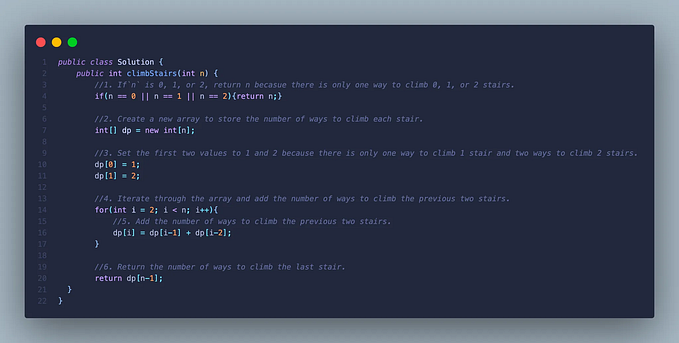DP related to combination
1866. Number of Ways to Rearrange Sticks With K Sticks Visible
We can use DP to solve this problem, the basic idea is:
The first number is 1: If the first is 1, then we have one element qualify, the rest is k-1. If we subtract the rest element by 1 for each, it will reduce the problem in to 1 to n -1. Which is DP(n-1, k-1)
The first number is not 1:
Then 1 will be less than all the element, we have n-1 way to put 1.
for example, 2 _3_
2 1 3
2 3 1
Code is here.
typedef long long LL;
int dp[1010][1010];
const long long MOD = 1e9 + 7;
class Solution {
public:
long long f(int n, int k) {
if(n < k || n<0 || k <0) return 0;
if (n==0 && k ==0) return 1;
if ( n == k) return 1;
if (dp[n][k] != -1) return dp[n][k];
long long ret;
ret = f(n-1, k-1)+ f(n-1, k)*(LL)(n-1);
ret %= MOD;
return dp[n][k] = ret;
}
int rearrangeSticks(int n, int k) {
if (n == k) return 1;
memset(dp, -1, sizeof dp);
return int(f(n, k)%MOD);
}
};A similar problem is this one
Number of Monotonically Increasing Lists
Thanks for reading.







